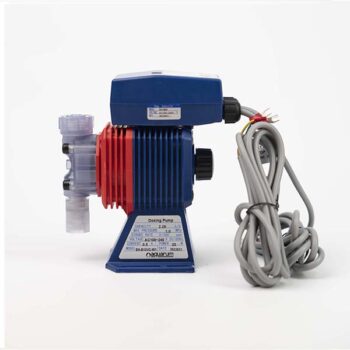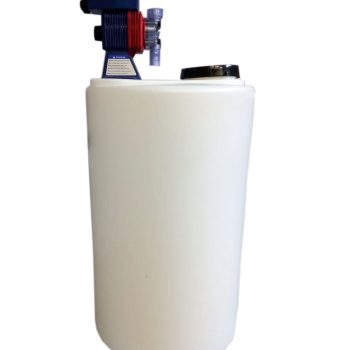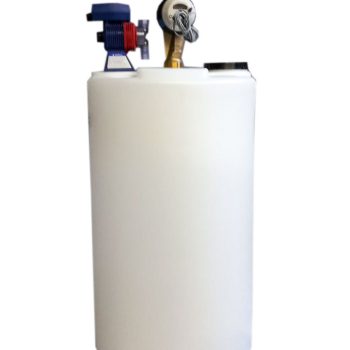DOSING PUMPS AND DOSING STATIONS
Anti-scalant dosing pumps and dosing stations are important components in various industrial processes, especially in water treatment and chemical dosing.
They play a crucial role in the precise and efficient addition of chemicals such as :
- anti-scaling agents
- disinfectants
- pH regulators and other treatment agents.
-
Dosing pumps and dosing stations
Antiscalant dosing station ASDA1 0.1 – 1.0 l / h, 60 l
355 $ Add to cart -
Dosing pumps and dosing stations
Constant dosing station ASDP2 DN20 60 l 0.1 – 1.0 l / h, 60 l
438 $ Add to cart -
Dosing pumps and dosing stations
Station for proportional dosing ASDP3 DN25 60 l 0.1 – 3.0 l/h, 60 l
587 $ Add to cart -
Dosing pumps and dosing stations
Proportional dosing station ASDP4 DN32 135 l 0.1 – 3.0 l/h
651 $ Add to cart
Metering pumps:
Metering pumps are devices used to accurately deliver a controlled volume of liquid chemical to a process stream at a predetermined rate. They are designed to provide dosing and maintain a constant concentration of chemicals.
Metering pumps are commonly used in industries such as water treatment, food and beverage, pharmaceuticals, etc.
Here are some key features of metering pumps:
- Accuracy: dosing pumps are designed to provide accurate and repeatable dosing, ensuring that the desired reagent concentration is achieved.
- Adjustability: dosing pumps often allow operators to adjust the dosing rate to meet specific process requirements.
- Control: dosing pumps can be operated manually or automatically by controllers. This makes it much easier for operators to set up and control the dosing of reagents.
- Chemical compatibility: dosing pumps are made of materials that are compatible with the chemicals being dosed to prevent chemical reactions and ensure durability.
Dosing Stations:
Dosing stations are special types of dosing systems designed to introduce chemicals against scale and mineral deposits into water treatment processes such as reverse osmosis systems, cooling towers, and boilers.
Special mention should be made of anti-scalants, which are chemicals that help to prevent the formation of scale and mineral deposits.
Most often such anti-scalant dosing stations are used in conjunction with a reverse osmosis system to protect the membrane from premature wear and extend the life of the membrane.
Here are some types of reagent dosing stations:
- Manual dosing stations: These stations are characterized by the operator manually adding chemicals to the water treatment system. Their main advantages can be attributed to their low cost, but at the same time, they require timely monitoring and adjustment to maintain proper chemical dosage.
- Gravity feed dosing stations: in these systems, chemicals are added to a storage tank or reservoir and gravity fed into the water treatment system.
More often used in small plants, their main disadvantage is low accuracy. - Proportional dosing stations: the main advantage of these stations is the use of pumps to supply reagents to the water treatment system. Reagents are fed in controlled proportions depending on the flow rate or other parameters. They are more accurate and reliable than manual or gravity-dosing stations.
- On-demand dosing stations: These are highly automated, using controllers and sensors to monitor water quality and adjust reagent dosing as needed. These systems are highly automated and efficient.
Both metering pumps and dosing stations are critical to maintaining the productivity and efficiency of various industrial processes by providing accurate and controlled chemical dosing.
They help prevent equipment damage, reduce maintenance requirements, and improve overall process quality. Proper selection, installation and maintenance of these systems are essential to their efficient operation.
own enterprise
customized solutions
operational experience
and installation









